With the polluted air, dust, and hot sun in Saigon, sunscreen is always a necessity. Just as sunscreen used to be an indispensable item for women when going out, it is now the same for men. Maybe it’s because guys are more “horse-like” than before. But that’s a good thing, not just for beauty purposes but also for personal health protection.
However, I wonder how many guys know which sunscreen is good for them since most of them just go to a convenience store and ask for “any sunscreen.”
To help guys avoid looking like a rice field, I will introduce the different types of sunscreen, which type is suitable for which skin type, and suggest some sunscreen products for reference.
Before diving into this topic, let’s first understand some terms and information about sun protection, such as SPF, PA++, and UVA/UVB, so that you won’t be confused when I mention them later in the article.
1 Choosing Sunscreen for Men by Product Type
There are several types of sunscreen, mainly cream, milk, gel, and spray. Depending on your skin condition and needs, you can choose the most suitable sunscreen for yourself. Men’s skin is usually coarse and oily, and few have dry or sensitive skin, so it’s relatively easy to choose.
Cream Sunscreen for Men
Cream sunscreen is the first and most basic type of sunscreen. The product usually comes in a small tube, with a soft cream that is typically white or slightly skin-colored.
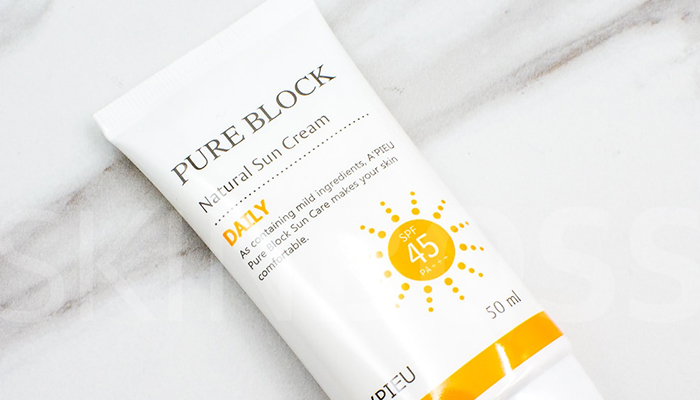
Pros
-
The cream is smooth and easy to use, quickly spreading evenly on the skin.
-
It’s easy to control the amount of cream used, making it more economical.
-
A wide variety of options are available to suit different skin types, purposes, and budgets.
-
Suitable for daily use, traveling, and beach vacations.
Cons
-
The cream can sometimes feel heavy on the skin, especially in the summer heat, as the sebaceous glands become more active, leading to clogged pores and potential acne if not properly cleansed at the end of the day.
-
After 2-3 hours, the sunscreen needs to be reapplied, which is inconvenient.
-
Cream sunscreen can easily wash off completely or partially when in contact with water or excessive sweating.
Milk Sunscreen for Men
This type of sunscreen is quite popular and used by many due to its comfortable feel on the skin.
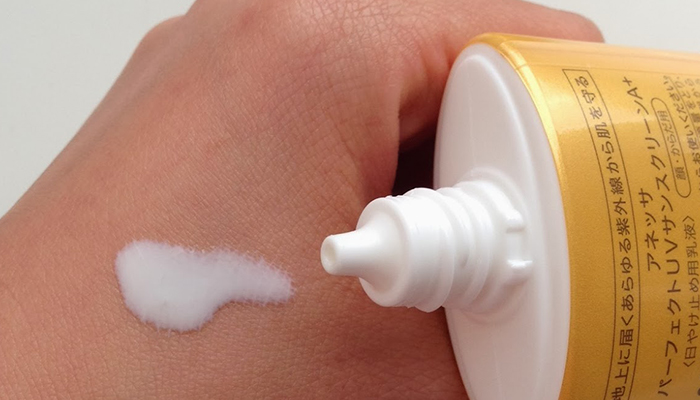
Pros
-
Milk is quickly absorbed into the skin, so you don’t have to wait long for it to take effect.
-
Doesn’t leave a greasy or sticky feeling on the skin.
-
A wide range of options are available to suit different skin types, purposes, and budgets.
-
Suitable for daily use, traveling, and beach vacations.
Cons
-
It’s difficult to control the amount of milk used, so it’s not as economical as the cream type.
-
Milk sunscreen needs to be reapplied after about 2-3 hours as it can easily wash off.
Spray Sunscreen for Men
As the name suggests, this type of sunscreen is applied by spraying it directly onto the face and body.
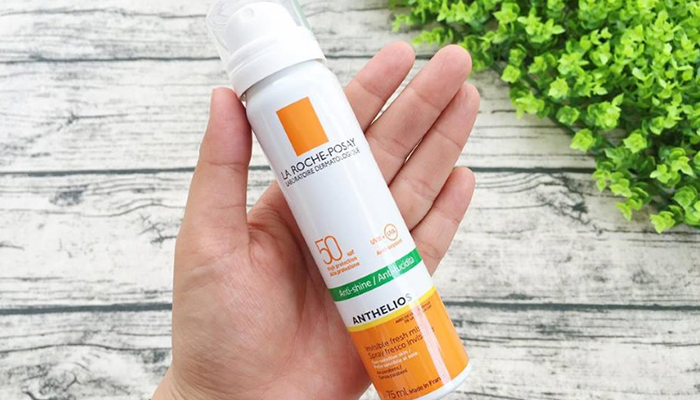
Pros
-
Very convenient and easy to use. If you prefer a quick and simple routine, this is a good option.
-
Easily accessible to hard-to-reach areas like the back and neck. Unlike cream sunscreen, which may require assistance from others to apply, spray sunscreen allows you to do it yourself without any help.
-
Less likely to clog pores, one of the main causes of acne today, so it’s ideal for oily and acne-prone skin.
-
Suitable for sports activities and short periods of outdoor exposure.
Cons
-
Spray sunscreen can feel sticky and uncomfortable on the face.
-
Difficult to control the direction of the spray, which may cause the solution to get into the eyes, leading to eye irritation.
-
Doesn’t adhere to the skin as well as cream sunscreen, so it doesn’t last as long.
-
It’s hard to determine the exact amount needed, so you may end up spraying unevenly, wasting product, and not knowing when to prepare another bottle.
-
While spray sunscreen is convenient to use, it may not be the safest option for the user and those around them. Experts advise against keeping spray sunscreen near open flames.
-
When exposed to fire, the user is at risk of burns as spray sunscreens often contain flammable ingredients like alcohol and organic solvents, which are not beneficial to health.
Gel Sunscreen for Men
Next up is another popular type of sunscreen, although not as commonly used by men.
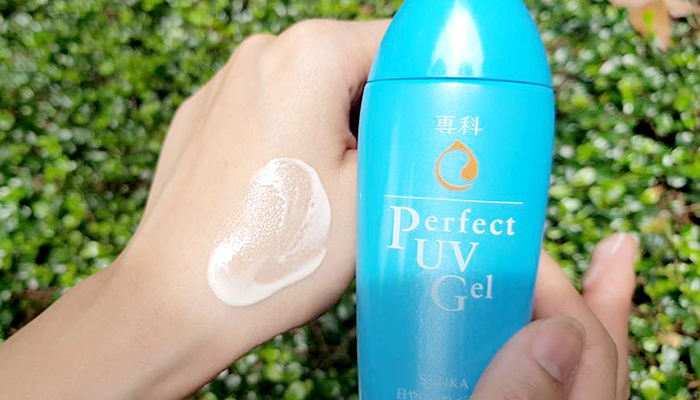
Pros
-
Leaves less of a sticky residue on the skin, thus not clogging pores.
-
Suitable for both dry and oily skin.
-
Ideal for daily use, especially during the summer.
Cons
-
Reapplication is necessary after about 2-3 hours in normal conditions. If the weather is hot and you sweat a lot, reapply after 30-80 minutes.
2 Choosing Sunscreen for Men by Skin Type
Most guys don’t pay much attention to their skin type, whether it’s oily, dry, or sensitive, and often make wrong choices when buying sunscreen or facial cleanser.
Choosing Sunscreen for Oily and Acne-Prone Skin
The majority of men tend to have oily skin. Look for sunscreens that absorb quickly, don’t leave a greasy feel, and provide a fresh sensation after application. Gel, milk, and spray sunscreens are perfect for oily skin. Look for terms like “oil-free,” “oil control,” “no sebum,” and “for oily skin” on the labels of sunscreens designed for oily skin.
Check out .
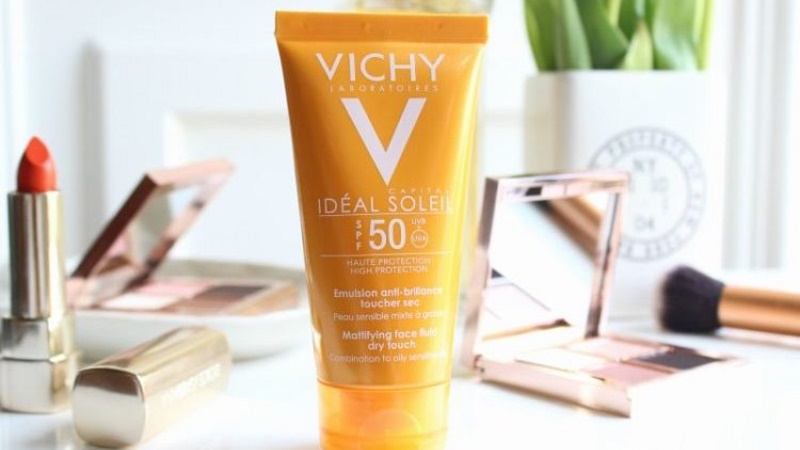
Choosing Sunscreen for Men with Dry Skin
For those with dry, flaky skin, opt for sunscreens containing moisturizing ingredients such as Glycerin and HA to ensure your skin stays hydrated throughout the day.
Check out
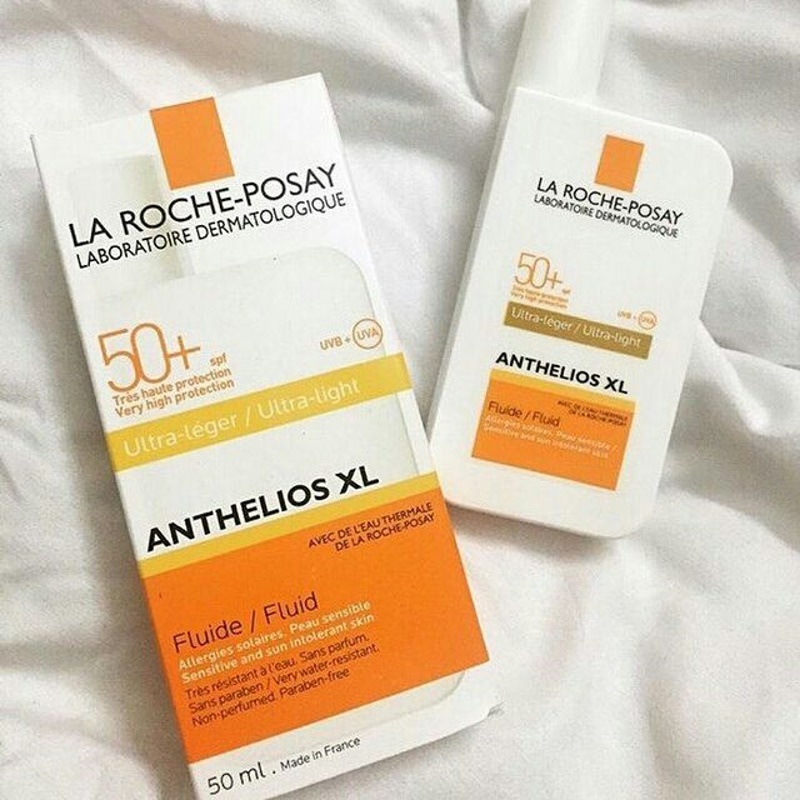
Choosing Sunscreen for Men with Sensitive Skin
Sensitive skin is delicate and easily irritated, so chemical sunscreens are not suitable. Go for physical sunscreens or a combination of physical and chemical sunscreens from reputable cosmetic brands.
Check out

Choosing Sunscreen for Men with Combination Skin
If sensitive skin is difficult to please, combination skin is even harder to find the right products for. My advice is to only consider products specifically designed for combination skin. That’s the best way to choose a suitable sunscreen for yourself.
3 Notes on Choosing and Using Sunscreen for Men
-
Opt for sunscreens with an SPF of 30 to 50 for daily use. A higher SPF doesn’t necessarily mean it’s better, as it can lead to clogged pores and acne. There are also other reasons why a lower SPF is recommended, which you can read about here:
-
Choose reputable cosmetic brands and avoid products of unknown origin.
-
Always use sunscreen, even on cloudy days. UVA and UVB rays can penetrate clouds and glass, affecting your skin.
-
Learn the proper way to apply sunscreen to ensure your skin is adequately protected:
-
Don’t feel pressured to choose a sunscreen specifically for men to assert your masculinity. You’ll notice that sunscreens for men are rarely sold on the market, and when they are, they tend to be more expensive.
-
Second, sunscreens for men are essentially similar to regular sunscreens in terms of their effects.
-
Third, no one will magically know you’re using a men’s sunscreen, so don’t worry too much about whether it’s specifically for men or not. Just focus on finding a sunscreen that suits your needs.
One reason why some men prefer men’s sunscreen is that it doesn’t leave a white cast on the face, making the skin look more natural. If you don’t like the white cast, opt for a chemical sunscreen or a combination of physical and chemical sunscreen.
Knowing how to choose the right sunscreen and which product to use is essential for men to protect their skin from the harmful effects of UV rays when spending time outdoors. It helps prevent skin darkening, spots, and other issues, keeping the skin healthy and attractive in the eyes of women.
For more interesting information, visit




































